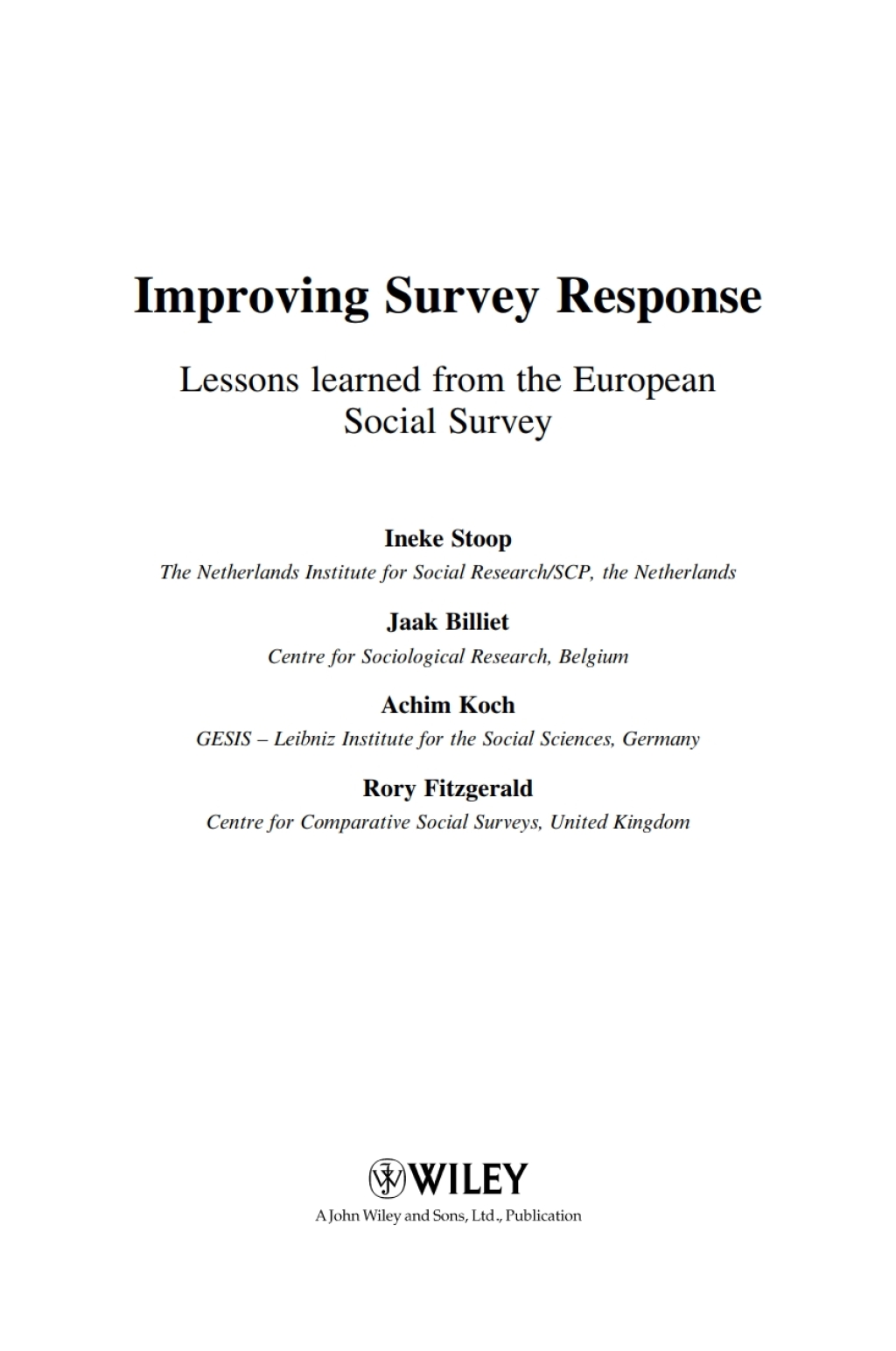Description
High response rates have traditionally been considered as one of the main indicators of survey quality. Obtaining high response rates is sometimes difficult and expensive, but clearly plays a beneficial role in terms of improving data quality. It is becoming increasingly clear, however, that simply boosting response to achieve a higher response rate will not in itself eradicate nonresponse bias. In this book the authors argue that high response rates should not be seen as a goal in themselves, but rather as part of an overall survey quality strategy based on random probability sampling and aimed at minimising nonresponse bias. Key features of Improving Survey Response: A detailed coverage of nonresponse issues, including a unique examination of cross-national survey nonresponse processes and outcomes. A discussion of the potential causes of nonresponse and practical strategies to combat it. A detailed examination of the impact of nonresponse and of techniques for adjusting for it once it has occurred. Examples of best practices and experiments drawn from 25 European countries. Supplemented by the European Social Survey (ESS) websites, containing materials for the measurement and analysis of nonresponse based on detailed country-level response process datasets. The book is designed to help survey researchers and those commissioning surveys by explaining how to prioritise the reduction of nonresponse bias rather than focusing on increasing the overall response rate. It shows substantive researchers how nonresponse can impact on substantive outcomes.






